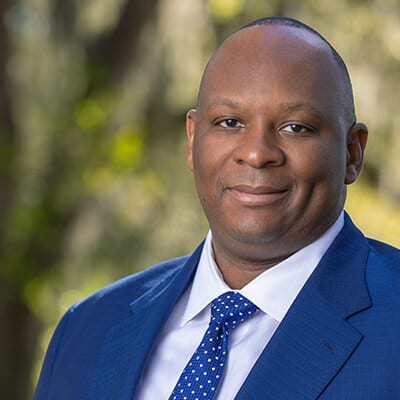Nursing Home Abuse Lawyers in New Orleans
No one likes to move a loved one into a nursing home or assisted living facility. But when a family member requires assistance or 24-hour skilled nursing care, a nursing home often becomes the only option. We trust nursing home staff members to care for our loved ones as they would their own family members. Yet, that is not always the case. Older, vulnerable adults can become victims of elder abuse. If you suspect that a family member has been abused or neglected in a nursing home or assisted living facility, the New Orleans nursing home abuse attorneys at Wright Gray Law Firm can help you seek justice.
Why Choose an Elder Abuse Attorney at Wright Gray Law Firm?
It's heartbreaking to see a family member who once played a pivotal role in our lives become frail and sick as they age. It's difficult to move them into a long-term care facility, but often, doing so is the best option. Nursing homes are regulated by state and federal law, but too often, violations go unreported and nursing home residents become victims of abuse or neglect. Oftentimes, residents won't speak out because of fear of retaliation or simply because they don't have the cognitive ability to do so.
These vulnerable residents shouldn't have to suffer. The personal injury lawyers at Wright Gray Law Firm have three decades of experience helping victims of nursing home abuse, and neglect, and their families, recover compensation for their injuries and other damages. We can help you, too. Contact a nursing home abuse lawyer from Wright Gray Law Firm today for a free and confidential consultation.
New Orleans Nursing Home Abuse Guide
Nursing home abuse is a form of elder abuse. According to the World Health Organization, elder abuse is an intentional act or failure to act by a caregiver or another person in a relationship involving an expectation of trust that causes harm to an adult 60 years and older. About 1 in 6 people 60 years and older experienced abuse in nursing homes and assisted living facilities in 2020.
Elder abuse is surprisingly common in the United States. According to the Centers for Disease Control and Prevention (CDC)'s latest statistics, about 1 in 10 older adults experience some form of abuse, neglect, or exploitation. More than 643,000 older adults were treated in the emergency department for nonfatal assaults, and over 19,000 homicides occurred.
Louisiana is also deeply affected by this problem. At least 14% of nursing homes in the state have deficiencies in essential areas. Furthermore, each nursing home resident only receives an average of 32 minutes of medical care on any given day. In addition, only 8% of professionals working in senior living facilities have a Registered Nurse or higher designation. These statistics are quite discouraging and show that nursing homes in the state are prone to nursing home abuse and neglect lawsuits.
What Are the Most Common Types of Nursing Home Abuse Cases?
Nursing home abuse comes in many forms, such as:
Medical Neglect
Medical neglect occurs when a nursing facility staff member rails to meet a resident's health care needs. Examples of medical negligence include:
- Failing to administer medications when needed or administering the wrong medication
- Providing improper medical care for an existing medical condition like diabetics or dementia
- Failing to regularly move senior residents with mobility issues, thereby causing bed sores
- Failing to report signs of infection to nurses or doctors
Social/Emotional Abuse
Social interactions can improve an elderly resident's mental health. However, nursing home employees can prevent residents from mingling, thereby affecting their mental and emotional health. An excellent example of this is isolating vulnerable residents from family or other residents.
Physical Abuse
Physical abuse causes an elder to suffer physical pain, illnesses, injury, functional impairment, distress, or even death. Physical abuse involves the intentional use of force and includes kicking, hitting, slapping, pushing, burning, and hitting residents of nursing homes.
Sexual Abuse
Sexual abuse involves forceful or non-consensual sexual contact with an older adult. It could be in the form of unwanted sexual contact, penetration, or non-contact acts like sexual harassment.
Mental Abuse
Mental abuse covers verbal or nonverbal acts that cause an older person anguish, fear, mental pain, emotional trauma, or distress. For example, this psychological abuse covers humiliating and disrespecting the elderly, harassment, verbal and non-verbal threats, and geographic isolation.
Neglect
Neglect occurs when a nursing facility fails to provide for the basic needs of residents. Nursing home neglect covers inadequate food, shelter, hygiene, clothing, water, and essential medical care.
Financial Abuse
Financial abuse, also referred to as financial exploitation, is the illegal, unauthorized, and improper use of an elder's money, benefits, belongings, property, or assets for the benefit of someone other than the older adult. A nursing staff member who commits financial abuse would face criminal charges.
What Causes Nursing Home Abuse?
Several factors could lead to substandard care in a nursing facility and, consequently, abuse and neglect of an elderly loved one. They include:
- Inadequate staffing
- Negligent hiring practices
- Individual resident risk factors
- Inadequate training of staff and lack of experienced nursing personnel
- Underpaid staff
- Poor supervision, management, and accountability
- Individual caregiver issues
What Are the Signs and Symptoms of Nursing Home Abuse and Neglect?
When you leave a beloved family member at a residential care facility, you expect the staff to uphold the standard of care. However, since this is not always the case, it's important to know how to detect abuse against seniors in an assisted living facility, nursing home, or otherwise under the care of others. Below are signs and symptoms to watch for.
- Broken bones
- Dehydration
- Bedsores (pressure ulcers/pressure sores)
- Bruises
- Insomnia
- Burns
- Personal hygiene issues
- Malnutrition
- Sudden changes in personality
- New or untreated medical conditions
- Other unexplained injuries
- Injuries in the genital area
Has Your Loved One Been Injured in a New Orleans Nursing Home?

If you suspect that a family member or friend has been abused or neglected in a New Orleans nursing home, contact the New Orleans nursing home abuse attorneys immediately. Our lawyers will review your case, determine if you have a valid claim, and discuss your legal options for seeking justice on your elderly loved one's behalf.
Can You Sue for Nursing Home Abuse and Neglect in New Orleans?
Louisiana law protects adults aged 60 or older from acts or omissions resulting in physical or emotional abuse and neglect inflicted by caregivers. So, if you believe that the eldercare facility your loved one resides in is abusing or neglecting them, the first step is to report it to Louisiana's Elderly Protective Services (EPS). Reporting elder abuse will begin an investigation into your claim by state officials, and will help ensure further abuse does not occur.
After filing the report, you may consider filing a nursing home abuse lawsuit seeking compensation for the medical expenses, pain and suffering, and other damages your loved one endured. But to do so, you will need an experienced nursing home neglect and abuse attorney who can help you build a strong case to ensure the best possible outcome for your family member.
How Do You Prove Nursing Home Abuse or Negligence?
You need evidence before taking legal action against a residential care facility. Thus, you can prove abuse or negligence in a nursing home by doing the following:
- Look for, taking note of, and photographing signs of abuse or neglect
- Obtain your loved one's medical records
- Take photographs of unsafe and harmful living conditions
- Get copies of any complaints filed with the EPS
- Take witness statements
- Gather information on past inspections of the nursing home and record any citations
- Hire an experienced attorney to guide you through the legal process
Contact a New Orleans Nursing Home Abuse and Neglect Lawyer from Wright Gray Law Firm Today

No one deserves to be subjected to inhumane conditions. If you suspect your loved one is a victim of nursing home abuse or neglect, contact a lawyer from Wright Gray Law Firm as soon as possible. A nursing home abuse attorney from our firm will launch an investigation to determine the validity of your claim. Once we find proof, we'll help you take legal action against the nursing home.
Nursing home abuse lawsuits are civil cases for personal injury or wrongful death, depending on the circumstances. If the abuse involves a crime like sexual abuse or financial exploitation, we will direct you to the proper authority to file a criminal complaint. In addition, we offer legal advice and will represent you in court should your case go to trial.
Contact Us Today!
At Wright Gray, our New Orleans personal injury lawyers believe in representing our clients to the fullest extent of the law. We will fight for and protect the rights of your loved one while ensuring you get justice. Call us today for a free consultation and case review.
Client Testimonial
"Incredibly professional staff of some of the most helpful people. Every call was answered, every concern was addressed, and all in a speedy timeframe. I cannot stress enough how helpful these wonderful people were in assisting me." -Adam H. ⭐⭐⭐⭐⭐
Wright Gray Trial Lawyers - New Orleans Office
201 St Charles Ave Suite 2710
New Orleans, LA 70170
P: 504-500-0000





